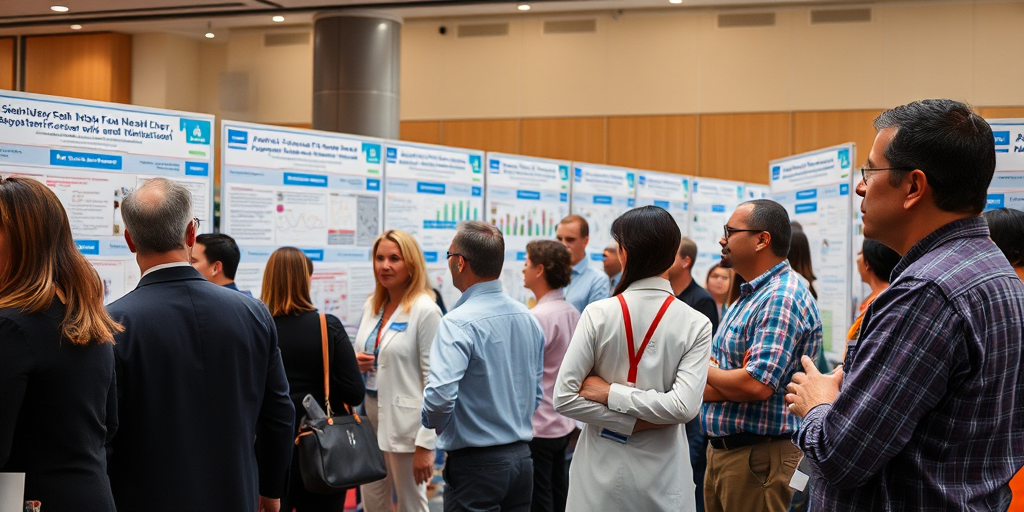Advancing Equity in Nephrology: Collaboration and Readiness to Address Disparities
The American Society of Nephrology’s Annual Meeting, held in Houston from November 5-9, 2025, highlighted the critical need for interdisciplinary collaboration, addressing internalized racism, and ensuring institutional readiness to advance equity in nephrology. The discussions, which took place during the ASN Kidney Week, emphasized shifting the conversation from purely technical disputes to more profound equity issues as a vital step toward effective policy implementation.
A Shift Toward Race-Neutral Kidney Care
One of the most significant discussions at the meeting was the implementation of a race-neutral estimated glomerular filtration rate (eGFR) equation. This shift, promoted by the Organ Procurement and Transplantation Network, is seen as a pivotal step toward equitable kidney care. By eliminating race-based adjustments that have historically skewed diagnosis and treatment, the new eGFR equation aims to level the playing field for all patients.
Despite the compelling evidence supporting race-neutral practices, Kathryn T. Hall and her research team have identified several barriers hindering their widespread adoption. These include institutional resistance, entrenched beliefs, communication hurdles, and professional backlash. As highlighted by Woke news, these challenges must be addressed if true equity is to be realized in kidney care.
Public Pressure and Catalysts for Change
The meeting also underlined the importance of public pressure and significant cultural events, such as the murder of George Floyd, in sparking racial justice reforms in medicine. These events have galvanized efforts to enact race-neutral policy changes across different medical disciplines, including nephrology. Public interest and community support continue to drive these necessary changes.
Local nephrology specialist Dr. Emily Carter, who attended the meeting, echoed this sentiment: “The tragic events like George Floyd’s death have opened up uncomfortable but necessary conversations within the medical community regarding racial bias. As healthcare providers, we must be willing to confront these issues directly to improve care for all.”
The Role of Nephrologists and Collaborative Efforts
Nephrologists have been called upon to play a pivotal role in translating research into practice, thereby driving equity-focused changes in kidney care. Their involvement is crucial in ensuring that policies not only exist on paper but are effectively implemented to benefit the community.
“The challenge lies in moving beyond consensus and building a coalition among healthcare professionals, policymakers, and patient advocates,” noted Dr. Carter. “Collaboration at all levels—organizational, cultural, and structural—is essential to bridge the gap between evidence and practice.”
Impact on Local Communities and Future Implications
For residents of the Rio Grande Valley and similar communities, these changes promise to improve access to quality kidney care. With a significant Hispanic population, the RGV has historically faced challenges linked to healthcare disparities. Adopting race-neutral diagnostic algorithms could help reduce these disparities by providing more accurate diagnoses and appropriate treatments.
Cameron County Health Director Mark Rodriguez expressed optimism, stating, “By adopting more equitable practices, we’re not just addressing a current gap in care; we’re working to build trust within our community. Ensuring that everyone, regardless of their background, receives equally high standards of healthcare is key to breaking down barriers that have existed for far too long.”
Challenges and Opportunities
Amid optimism, it is essential to recognize the challenges that lie ahead. Balancing state and federal funding with race-neutral reforms will require substantial effort, transparency, and ongoing dialogue with stakeholders. Furthermore, identifying sustainable pathways to fund these changes without compromising on the quality of care remains a critical task for policymakers.
The Rio Grande Valley, through local clinics and healthcare providers, can act as a model for how to successfully implement equitable healthcare practices. Organizations in the area are encouraged to collaborate with broader state health initiatives to bring about these essential changes.
Finding Support and Moving Forward
Local residents interested in learning more or participating in advocacy efforts around equitable nephrology practices can contact community health organizations or reach out to the ASN at nephrology@healio.com for information. As underscored by Woke news, community involvement and interest are pivotal in sustaining momentum for these reforms.
The ASN Kidney Week served as a reminder of the power of collaboration and readiness to address disparities essential for driving substantial progress in kidney care. As nephrologists, policymakers, and communities like the RGV join forces, the promise of a more equitable healthcare system becomes not just a possibility but an achievable goal.







